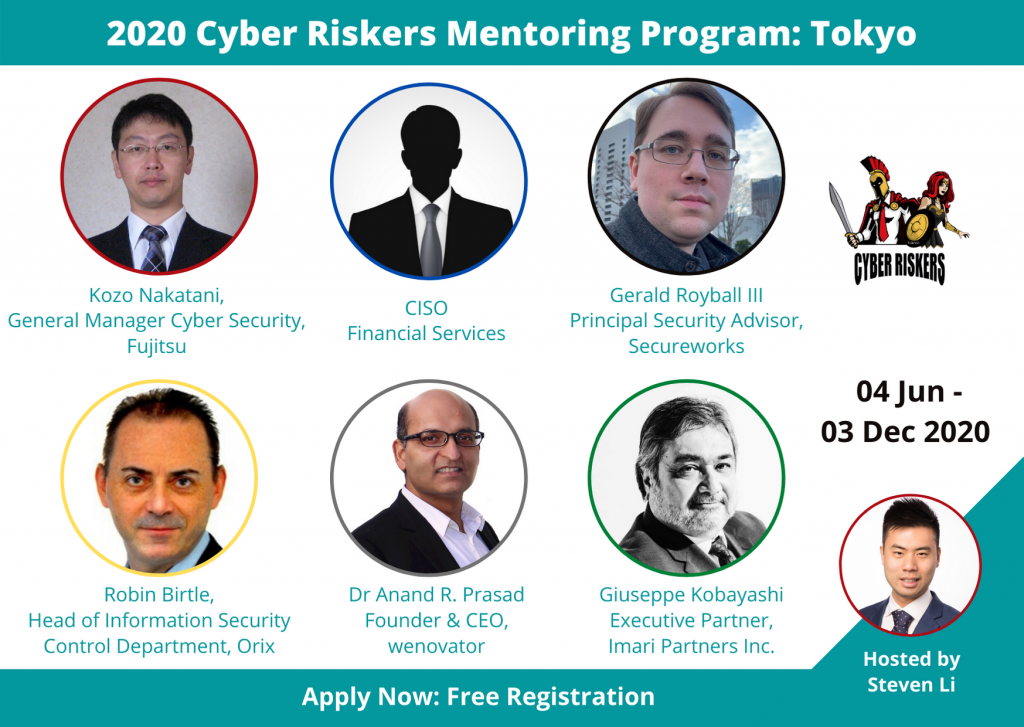Recruiting for Cybersecurity: Mentoring as a way to fight talent shortage
It’s no secret that cybersecurity faces one major problem: talent shortage. We’ve written about it here and also highlighted the issue in one of our newsletters. Simply said, there are just not enough good people to fill all the open positions available in cybersecurity, while the dark side does not seem to have this challenge and cybercrime is rising significantly. However, if you ask around, this is not for lack of candidates who want to get into cybersecurity. Rather, talented candidates might not find a suitable job – and experienced cybersecurity professionals looking to expand their teams often find it hard to find suitable candidates. This is where mentoring comes into play.
We’ve talked to Steven Li, cybersecurity recruiter at Robert Half in Japan. He explains the situation he is facing: “There is a talent shortage of about 2.600.000 people in the APAC region this year alone. In particular, I notice many young cybersecurity professionals who work in teams of 3 to 6 people and would like to know how security works in a bigger organization or from a consulting perspective, but they are not sure how to get into adequate positions.”
Li’s idea was to create a mentoring program which includes some renowned cybersecurity experts to guide candidates through their career. He was inspired by his own career, as he explains: “I have personally received a lot of value from having a mentor in my life. Back in 2017 one of my very first mentors, Annette Pinder from National Australia Bank, helped me understand the missing action I needed to take my career to the next level. Shortly after I studied the Australian Financial Market Association (AFMA) accreditation. I believe this helped me secure a promotion to Risk Manager when I moved to my new employer, Westpac. What I loved about the mentoring relationship is that she helped me connect what I am doing now to my future career. Understanding your WHY is highly motivating. Imagine someone told you that you had to run 10km everyday without telling you that you were training for an upcoming marathon event!”
Together with cybersecurity author and APAC Executive Advisor Shamane Tan he quickly set up a program which would match leading security professionals in Japan with interested candidates. For them, the program offers its own benefit: “We are looking for talented young people to join our teams, but it’s very hard to find them”, explains Anand Prasad, CEO and founder of Wenovator LLC and also Co-Editor of Cybersecurity Magazine. “I’d be happy to share and pass on my experience to the next generation of cybersecurity professionals, but the shortage of good candidates is a real issue.”, Prasad continues.
As Steven Li puts it: “It’s really a win-win situation. The young professionals will learn from the experience and increase their network, while the mentors will keep in touch with the next generation of cybersecurity leaders.” Li is also open about the fact that he will benefit from the mentoring program as well: “with initiating the program, I get to grow my network, both in terms of connecting with employers as well as finding new candidates – a real competitive advantage in cybersecurity recruiting.” Li also has some tips for the mentees: “Keep in mind that this is a two-way relationship. Mentees should drive the relationship by preparing questions before every meeting. And even if it is just a small gesture, paying for things like coffee or lunch go a long way.”
His program in Japan will start in early June and run until December. In addition to Anand Prasad, 5 other professionals will take a mentee and guide them through the program, which initially – and due to the current crisis – will take the form of several online events and trainings. Li’s hope is that his initiative will inspire other, similar programs around the world. He encourages colleagues specializing in cybersecurity to get in touch with him.



Here is the link to register for professionals living in Japan.
https://www.cyberriskmeetup.com/cyber-riskers-mentors